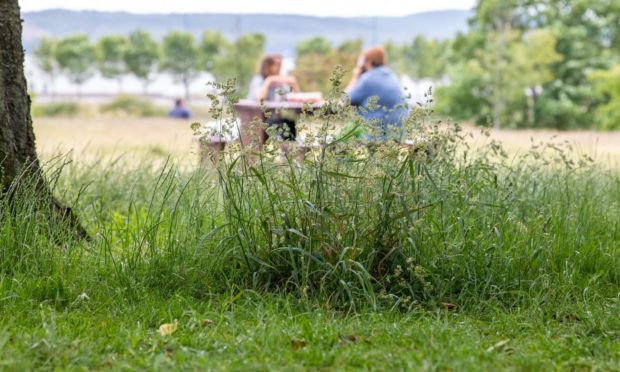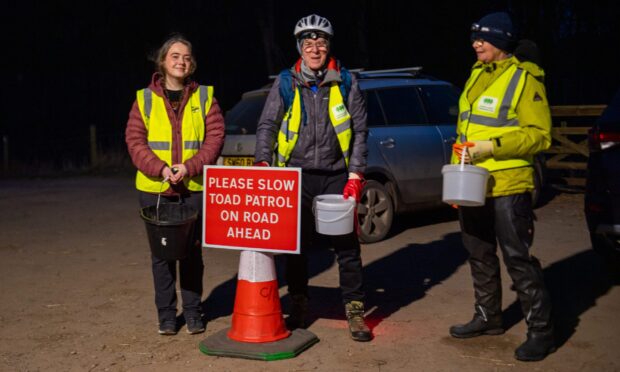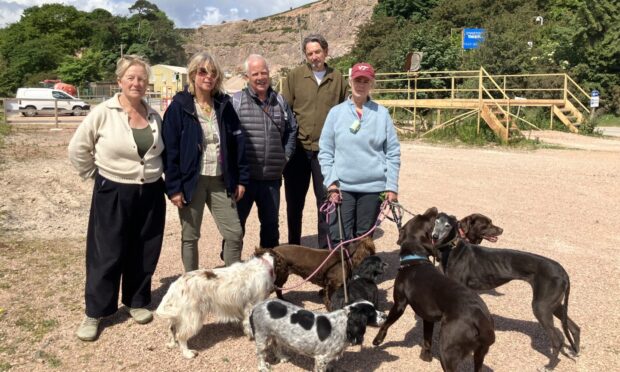An opportunity to promote wildlife in Dundee during lockdown was “squandered” when grass and hedges were cut in the summer, it has been claimed.
Environmental activists have called for green spaces in the city to be left to grow to support insects and birds.
They say when maintenance stopped during lockdown, it allowed wildlife to thrive but when the grasscutters returned in the summer, parks became “green deserts” again.
Dundee City Council is holding a consultation on plans to create up to 25 “naturalised zones”, including in sections of Magdalen Green, where grass and wildflowers could be left uncut.
But at a meeting of the council’s neighbourhood services committee on Monday night, campaigners said this did not go far enough.
Ian Ford, chairman of Friends of Riverside Nature Park, said he would have liked to see areas of green spaces in the city left to grow naturally after lockdown.
“Despite all of the negative impacts of Covid-19, nature thrived,” he said.
“In Dundee, flowers bloomed where they hadn’t been seen for a very long time because they had always been mown, pollinating insects were abundant and people’s physical and mental wellbeing benefited.
“Unfortunately as lockdown eased I feel Dundee City Council squandered this ideal opportunity to make a sea change.
“It would cost nothing to let nature and biodiversity flourish but sadly it was business as usual and mowers started manically mowing all over the city. The green oasis which had been buzzing with life became green desert, devoid of life.”
Those views were echoed by Mary Harwood, of the Miley support group, which looks after a mile-long nature reserve on a disused railway.
Committee convener Anne Rendall said an updated biodiversity plan will be published in the spring.
Councillors said they were pleased to see engagement on the issue but acknowledged there was divided opinion in the city as some residents prefer to see well-maintained parks.
Strathmartine councillor Kevin Keenan said: “There are lessons to be learned but we need to take people with us because during lockdown a lot of people felt we were being disrespectful to them and their families when we couldn’t cut grass in the graveyards.
“There is a lot to be done in relation to biodiversity but there is also a lot we need to do to convince people this is the right direction, without upsetting anyone.”
Dr Diana Otto of Eco Dundee also made a speech during the meeting, asking councillors to stop using a herbicide called Glyphosate.
Tony Boyle, the council’s head of environment, said the use of Glyphosate had reduced and is only sprayed in a controlled manner by trained staff.
“We conform with UK and European guidance and will continue to do so,” he said.
“Safe systems of work have been established to ensure controlled usage and potential exposure is minimised.
“The council is investigating alternatives and is not excessively using herbicides.
“Over last two years we have made steady progress in reducing usage. We are looking at this seriously and it is being managed carefully.”










